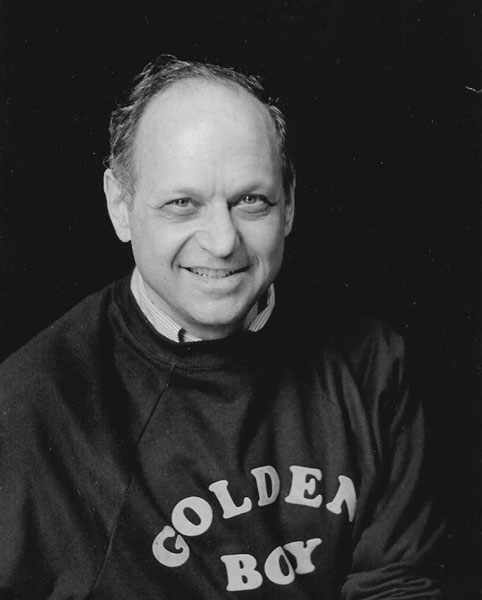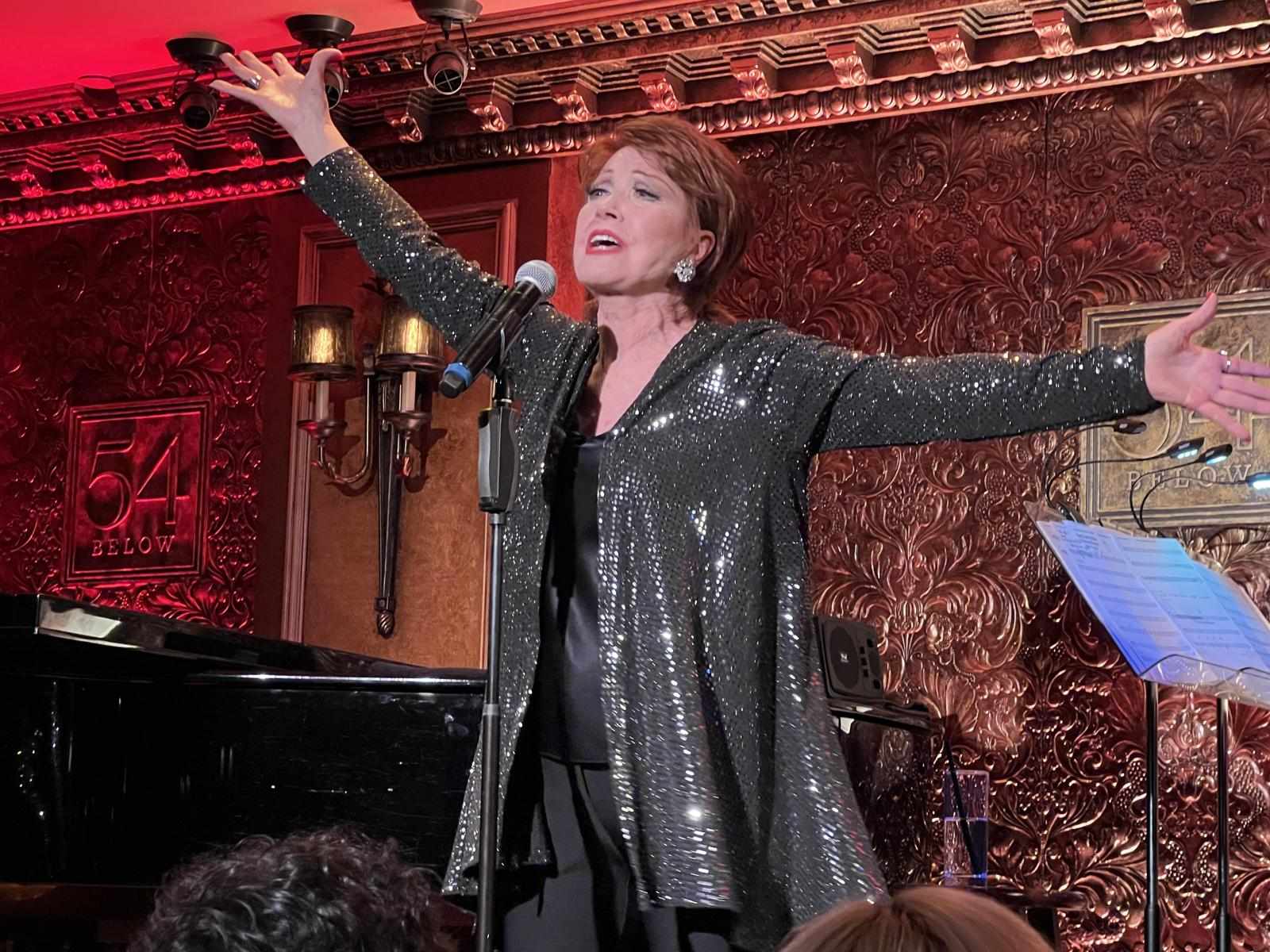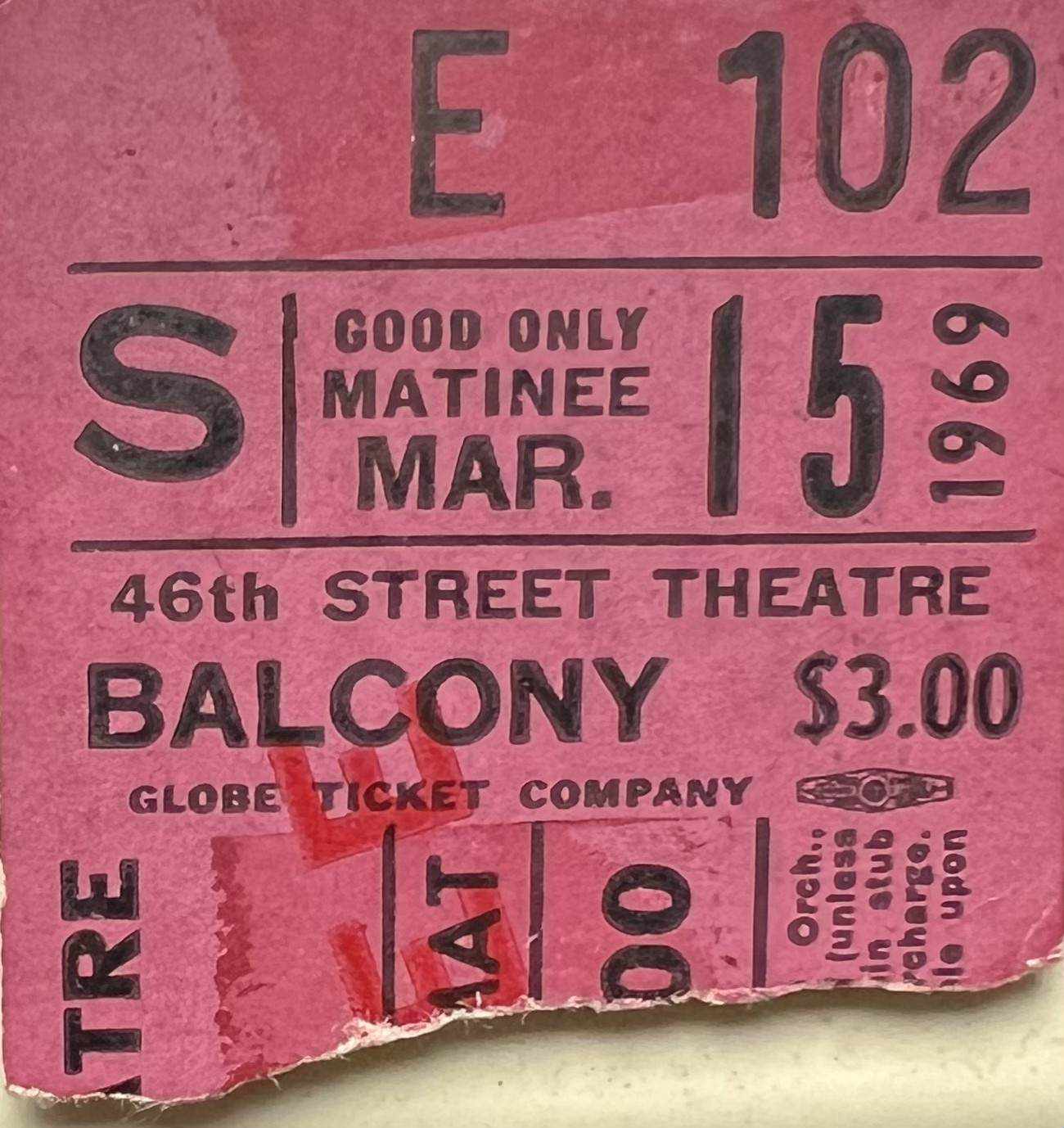
June 2, 2022: Theatre Yesterday and Today, by Ron Fassler
During the height of my teenage theatergoing years, which occurred between 1969 and 1973, I was never happier than when I would pore over the New York Times' ABC's Directory in order to plan out my schedule, topped only when I had an actual ticket in hand while heading to Up in the Cheap Seats. Dated June 2, 1972, the twenty shows listed above are what Broadway looked like fifty years ago today. I saw nineteen of them at an average ticket price of around $3 bucks. I would have happily seen all twenty, but since it was Oh! Calcutta! and I was fifteen, I wasn't allowed to purchase a ticket (and believe me, I tried).

Compared to the thirty-one shows currently running this June 2nd, the list might appear a bit paltry. One of the reasons why more theaters are filled now (even considering Covid) is because June, July and August used to be theatre's summer doldrums. It's only been over the last thirty years or so that these months became Broadway's prime tourist season, save for December. Another thing is that the Tonys used to be handed out six weeks earlier (April 23rd in 1972) and, if some shows didn't win the awards on which they pinned their hopes, they closed. Also, it was common before summer got started that long runs would call it quits.
Evident by this 1972 list are a number of older shows on their last legs, nine of which exited by Labor Day. The cruelest weekend was the first one in July, in which two of Broadway's most sensational titles, Fiddler on the Roof and Hair, finished their triumphant runs. In addition, Butterflies are Free, a modest but funny comedy by Hollywood screenwriter Leonard Gershe, signed off after a very long run for a straight play (close to three years). Film legend Gloria Swanson was brought in towards the end to help ticket sales to no avail. The next day, the much-lamented Follies folded after fifteen months, resulting in a half a century's worth of Sondheim fans kicking themselves for not seeing it when they had the chance.

The winners of the Tonys for Best Actor and Actress in a Play saw their shows end over the summer, two and three months after winning their awards. The phenomenal Cliff Gorman had already left Julian Barry's Lenny, with standup comic and actor Sandy Baron replacing him as Lenny Bruce in its final few weeks. And the sublime Sada Thompson had to have been hopeful her Tony win would mean a bigger boost at the box office for the George Furth comedy Twigs, but it wasn't meant to be (she was sensational in it, by the way). And Tony Awards for the wonderful Phil Silvers and Larry Blyden weren't enough to save the critically acclaimed revival of Stephen Sondheim, Larry Gilbert and Burt Shevelove's A Funny Thing Happened on the Way to the Forum. In its limited Los Angeles engagement the previous fall, it had been such a hit that Blyden sought investors personally to raise the money to take the show to New York where critics were equally enthusiastic. Post-Tonys, Forum's box office plunged before the dreaded days of summer even began.
To boost business, Blyden came up with a publicity stunt that involved making its July 4th matinee performance free for all, first come/first served. Even though I’d already seen this Forum one and a half times (yes, I snuck in an intermission one afternoon), I got my brother to join me, and we took a train into Manhattan from our home on Long Island to see if we could get in. Of course, we didn’t anticipate that thousands of other people had the same idea. When we arrived on West 46th Street, we saw the line that snaked all the way to 8th Avenue and up to 47th, instantly realizing we had no chance of getting in.
Another teenager who adored Phil Silvers took a train in that afternoon, too. All alone, young Joe Lane (later to change his name professionally to Nathan Lane) came in from Jersey City and had much better luck than my brother and I did. It came up in a discussion I had while interviewing Nathan back in 2013:
“I was sixteen years old and showed up for that 4th of July matinee. They were giving away every seat in the house for free, which would never happen today. I was the last one to get in. They closed the door after me. And with everyone there for free we went berserk when Phil Silvers came out. What a day that was. I thought he was phenomenal. I’m so glad I got to see him.”
Not lost on Nathan Lane was the symmetry of his winning his first Tony Award twenty-four years later for playing Pseudolus in the 1996 Broadway revival of Forum.

Just like today, musicals were the thing in 1972. All the Best Musical nominees were still running at Tony time (Ain't Supposed to Die a Natural Death, Follies, Grease and Two Gentlemen of Verona), plus Sugar and Jesus Christ Superstar, which made for some healthy and diverse theatre. It should come as no surprise that Follies was the most memorable of this group. Even from my seat in the 3rd to last row of the Winter Garden ($6, almost twice as much as I usually paid), I knew I was watching a one-of-a-kind musical. And since I saw it at its second to last preview, I had no reviews or any preconceived notions to set me up for what I was in for. I was gobsmacked by its spectacle. In particular, the "Loveland" section from start to finish was a marvel. My memories fifty years later are still intact.
Every actor in Follies stood out as among the season's best. It's hard to believe that Alexis Smith took home its sole Tony in the acting categories and that John McMartin was the only one of its four leads that didn't even get a nomination. Speaking of which, with all those grande dames in the cast, not one got a Featured Actress in a Musical nomination (Yvonne DeCarlo, Ethel Shutta, Mary McCarty — come on!).
One of the all-time great musical theatre performances occurred this season as well with Robert Morse cavorting in drag in Sugar, Jule Style, Bob Merrill and Peter Stone's musical version of the 1959 film classic Some Like It Hot. Funnily enough, Broadway will be seeing an all-new musical version of the film this fall, now baring it’s original title, at the Shubert Theatre. J. Harrison Ghee, a six-foot-four African American actor takes over where the 5'5 Morse once stood. Different size high heeled shoes, for sure. Ghee will have to do well to compete with the kind of reviews his predecessor once received, as you can read here:

Scroll back up to the ABC’s and squint to read the prices for these shows fifty years ago (and try not to weep). Careful examination will reveal Follies offering "some $2 seats available for all perfs," while the maximum price for an orchestra seat was $15. That price remained stagnant for some time, though five years later, when Liza Minnell's The Act opened (a nowhere near top drawer Kander and Ebb musical), its top ticket price hit a scandalous $25! The outrage was heard as far uptown as the Bronx. After all, In 1977, Annie was the biggest hit in years and its producers were only charging $17.50 on a Saturday night. But as proof that high price seats don't really seem to deter audiences, we are in the current situation of the hit revival of The Music Man charging ever escalating obscene amounts and selling out regularly. Even taking inflation into consideration, the difference between going to a box office and getting a fifth row center seat for $25 that now costs $550 is beyond the pale.
All just to show that fifty years is a long, long time.
If you enjoy these columns, check out Up in the Cheap Seats: A Historical Memoir of Broadway, available at Amazon.com in hardcover, softcover and e-book. Also, follow me here on Scrollstack and feel free to email me with comments or questions at Ron@ronfassler.org.





















Write a comment ...